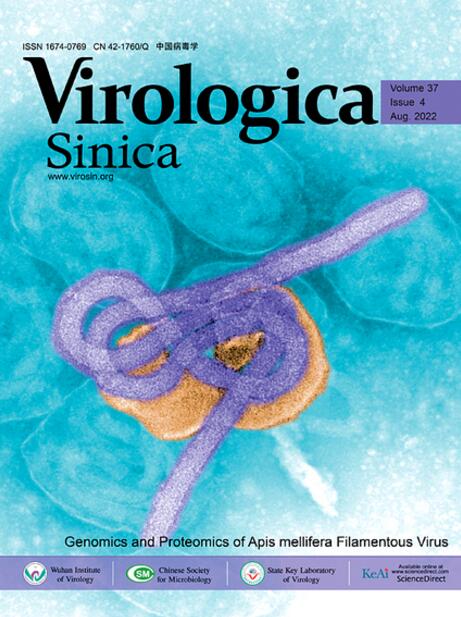寨卡病毒在埃及伊蚊中的传播:蚊子水平和垂直传播病毒能力的系统研究。
IF 4
3区 医学
Q1 Medicine
引用次数: 0
摘要
寨卡病毒(ZIKV)是一种由蚊子传播的病毒,属于正黄病毒属、黄病毒科。它通常表现为类似发热的症状、神经系统问题和人类妊娠并发症。目前,还没有商业疫苗或特定的治疗方法来预防 ZIKV 感染。因此,控制该流行病的传播有赖于防止蚊子传播病毒。虽然已有多项研究探讨了 ZIKV 在蚊子和脊椎动物宿主之间的传播,但有关 ZIKV 潜在蚊子间传播的全面研究仍然有限。在这项研究中,我们进行了系统的实验室调查,以评估 ZIKV 在蚊子间传播的能力,并评估 ZIKV 感染对蚊子发育的影响。我们的研究结果表明,ZIKV 可以在埃及伊蚊之间垂直和水平传播,传播途径包括同性或异性蚊子之间的产卵和接触。此外,我们还观察到,ZIKV 感染会导致蚊卵数量减少,但体积增大。我们注意到 ZIKV 在受感染蚊子中的广泛分布以及病毒感染后激素相关基因水平的改变,这可能会导致病毒在蚊子中传播并影响蚊子的发育。这项研究为 ZIKV 在蚊子中的传播提供了系统的实验证据,这对于制定新型战略以阻断正黄病毒和其他蚊媒病原体的传播至关重要。本文章由计算机程序翻译,如有差异,请以英文原文为准。
Zika virus transmission in Aedes aegypti: A systematic study on the ability of mosquitoes to transmit the virus horizontally and vertically
Zika virus (ZIKV) is a mosquito-borne virus belonging to the genus Orthoflavivirus, and the family Flaviviridae. It commonly presents with febrile-like symptoms, neurological issues, and pregnancy complications in humans. Currently, there is no commercial vaccine or specific treatment available to prevent ZIKV infection. Therefore, controlling the epidemic's spread relies on preventing mosquitoes from transmitting the virus. Although various studies have explored the transmission of ZIKV between mosquitoes and vertebrate hosts, comprehensive research on potential mosquito-to-mosquito transmission of ZIKV remains limited. In this study, we conducted systematic laboratory investigations to assess the ability of ZIKV to spread among mosquitoes, and to evaluate the impact of ZIKV infection on mosquito development. Our findings revealed that ZIKV can be transmitted between Aedes aegypti mosquitoes both vertically and horizontally, through oviposition and contact between mosquitoes of the same or opposite sex. Additionally, we observed that ZIKV infection resulted in a reduction in the number of mosquito eggs but an increase in their size. The widespread distribution of ZIKV in infected mosquitoes and the altered levels of hormone related genes following viral infection were noted, which may contribute to viral transmission among mosquitoes and affect mosquito development. This research provides systematic experimental evidence of ZIKV transmission among mosquitoes, which is crucial for developing novel strategies to disrupt the spread of orthoflaviviruses and other mosquito-borne pathogens.
求助全文
通过发布文献求助,成功后即可免费获取论文全文。
去求助
来源期刊

Virologica Sinica
Biochemistry, Genetics and Molecular Biology-Molecular Medicine
CiteScore
7.70
自引率
1.80%
发文量
3149
期刊介绍:
Virologica Sinica is an international journal which aims at presenting the cutting-edge research on viruses all over the world. The journal publishes peer-reviewed original research articles, reviews, and letters to the editor, to encompass the latest developments in all branches of virology, including research on animal, plant and microbe viruses. The journal welcomes articles on virus discovery and characterization, viral epidemiology, viral pathogenesis, virus-host interaction, vaccine development, antiviral agents and therapies, and virus related bio-techniques. Virologica Sinica, the official journal of Chinese Society for Microbiology, will serve as a platform for the communication and exchange of academic information and ideas in an international context.
Electronic ISSN: 1995-820X; Print ISSN: 1674-0769
 求助内容:
求助内容: 应助结果提醒方式:
应助结果提醒方式:


